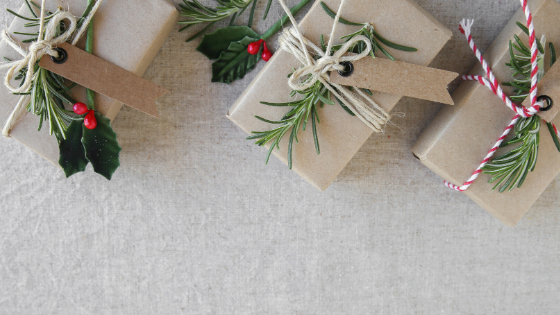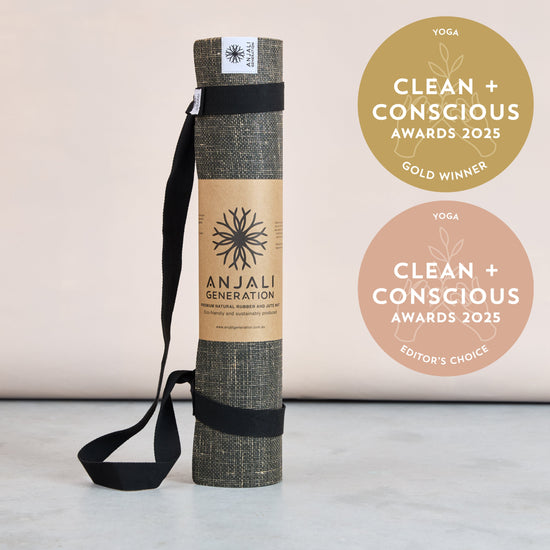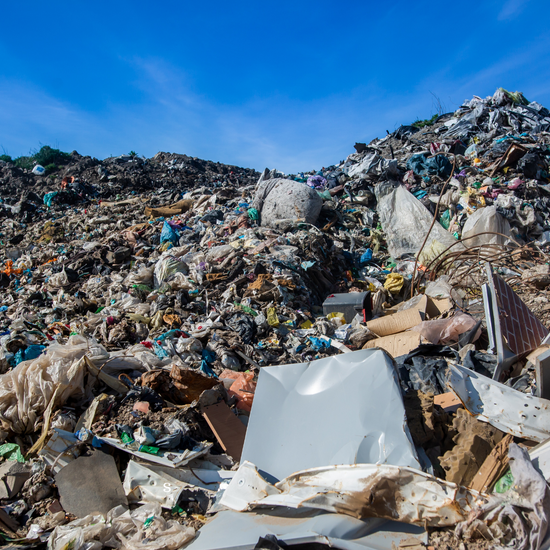"Jingle bells, jingle bells" here we go again......
The tree is decorated, the over-stocked shops are playing Christmas tunes, and we're all about to spend a whole lot of money and generate a ton of waste.
Does this sound like you? If it does, you're in good company as most of us find it hard not to overspend at this time of year. We know that Christmas shouldn't be about consumerism and yet we find ourselves buying into this culture of excess. At the same time our planet is getting closer and closer to a state of irreversible destruction, making the idea of a sustainable Christmas more important than ever.
Material Waste
Vast quantities of waste are generated from packaging and gift wrapping. According to one survey(1), Australians use around 150,000 kms of wrapping paper at Christmas time - enough to go around the world four times! Imagine what the global statistics must be like. Additionally, large amounts of waste are generated from Christmas cards, crackers, tinsel and other decorations. Then there will be all the toys and novelty gifts that are broken or simply thrown out and in landfill by the end of January....

Food Waste
Many of us are guilty of buying very large quantities of food at Christmas time. We serve huge platters of seafood and meats, enormous hams and turkeys, and multiple desserts. As a result of this nearly all of us will throw some food away - often quite a lot of it. The issue with food waste is that when it ends up in landfill it produces methane which is a greenhouse gas. Also being wasted are the resources that went into the food production, the packaging and the transportation to our shops and then to our homes. The moral issues of this kind of waste in a world of inequality cannot be ignored either.

The Plastic Problem
It would be hard to have missed the fact that the world is facing a plastic crisis. According to Plastic Oceans International(2), we are currently producing over 300 million tons of the stuff every year – more than half of this if for single use purposes only. Millions of tons of plastic end up in the world’s oceans every year causing untold suffering and death to marine and bird species. We are now also finding significant quantities of microplastics in our own food chain with unstudied implications for our health.
You’ve only got to look around you to see the amount of plastic generated every Christmas, it’s everywhere – from the tinsel, lights, and decorations on your tree (possibly the tree itself) to the plastic toys inside crackers. The latter usually get swept straight into the bin when the table is cleared. Plastic is in the packaging around your gifts and around your food and drinks. The scary thing is that less than 90 % of the plastic we produce ever gets recycled.
Making More Conscious Choices
There are many easy and cheap ways to have a more eco-friendly Christmas without spoiling the sense of occasion. Here are just a few suggestions:
- Wrap your gifts with recycled paper or with reusable cloth (look to the Japanese furoshiki for inspiration - see bottom image).
- Avoid glittery or plasticised paper which cannot be recycled.
- If you already own a fake tree and decorations you should continue to use these (no need to put them in landfill). Otherwise look for a real tree in a pot which can be planted after Christmas.
- Look for or make eco-friendly Christmas decorations (there are many suggestions on the internet).
- Use ecards rather than traditional Christmas cards. If you do use the latter, then consider recycling them as gift tags next year.
- Avoid buying unnecessary quantities of food - make a shopping list of essentials and stick to it. Remember the shops are usually only closed for one day!
- Try to buy food items without excessive packaging - you'll most likely end up with fresher food this way too.
- If you are meat eaters, see if you can reduce your meat consumption and add in some extra vegetable and salad options. This will also result in a healthier Christmas meal.
- Don't leave Christmas lights on unnecessarily.
- Have a talk with your family and agree to limit the number of gifts given.
- Give eco-friendly gifts where possible. Both the Anjali Jute and natural rubber mat and Anjali cork deluxe yoga mat are beautiful eco gifts - as are all Anjali Generation products.
- See if you can gift an experience rather than a physical gift - yoga or meditation classes, retreats or special events are a great gift idea.

Even adopting one or two small changes to the way you usually do Christmas can have an impact and might also help raise awareness amongst your family and friends.
Happy Festive Season!
Namasté
(1) Medianet
(2) Plastic Oceans International





